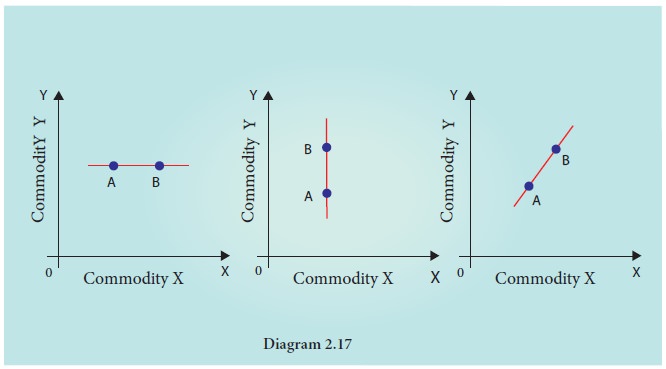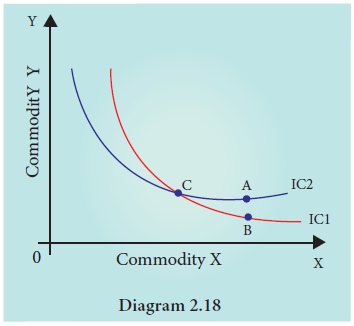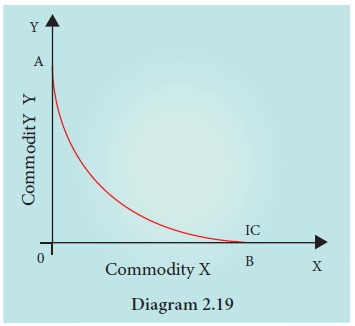Economics - Properties of the Indifference Curves | 11th Economics : Chapter 2 : Consumption Analysis
Chapter: 11th Economics : Chapter 2 : Consumption Analysis
Properties of the Indifference Curves
Properties
of the Indifference Curves
Indifference
curves are subjective and unique to each person. Nevertheless they have in
common the following properties:
1. Indifference curve must have negative slope
An
indifference curve has a negative slope, which denotes that if the quantity of
commodity (y) decreases, the quantity of the other (x) must increase, if the
consumer is to stay on the same level of satisfaction. (a necessary consequence
of the non satiety postulate).

The
curves that do not have negative slopes such as those shown in diagram 2.17 cannot
be indifference curves, in all three cases combination B is clearly preferable
to combination A.
2. Indifference Curves are convex to the origin
Indifference
curves are not only negatively sloped, but are also convex to the origin. The
convexity of the indifference curves implies that not only the two commodities
are substitutes for each other but also the fact that the marginal rate of
substitution (MRS) between the goods decreases as a consumer moves along an
indifference curve.
3. Indifference curve cannot intersect

IC1
is lower indifference curve denoting lesser satisfaction. Combination C and B
fall on IC1.
IC2
is upper indifference curve denoting higher satisfaction. C and A combinations
are on IC2.
At the
point of intersection, C=B on IC1 and C=A on IC2. So A=B
whereas, A is in upper IC and B is on lower IC. This is not possible.
4. Indifference curves do not touch the horizontal or vertical axis.

If they
touch the axis, it violates the basic assumption that the consumer purchases
two commodities in a combination. Purchasing only one commodity means monomania
that is consumers’ lack of interest in the other commodity or his insistence on
purchasing only one commodity.
Related Topics